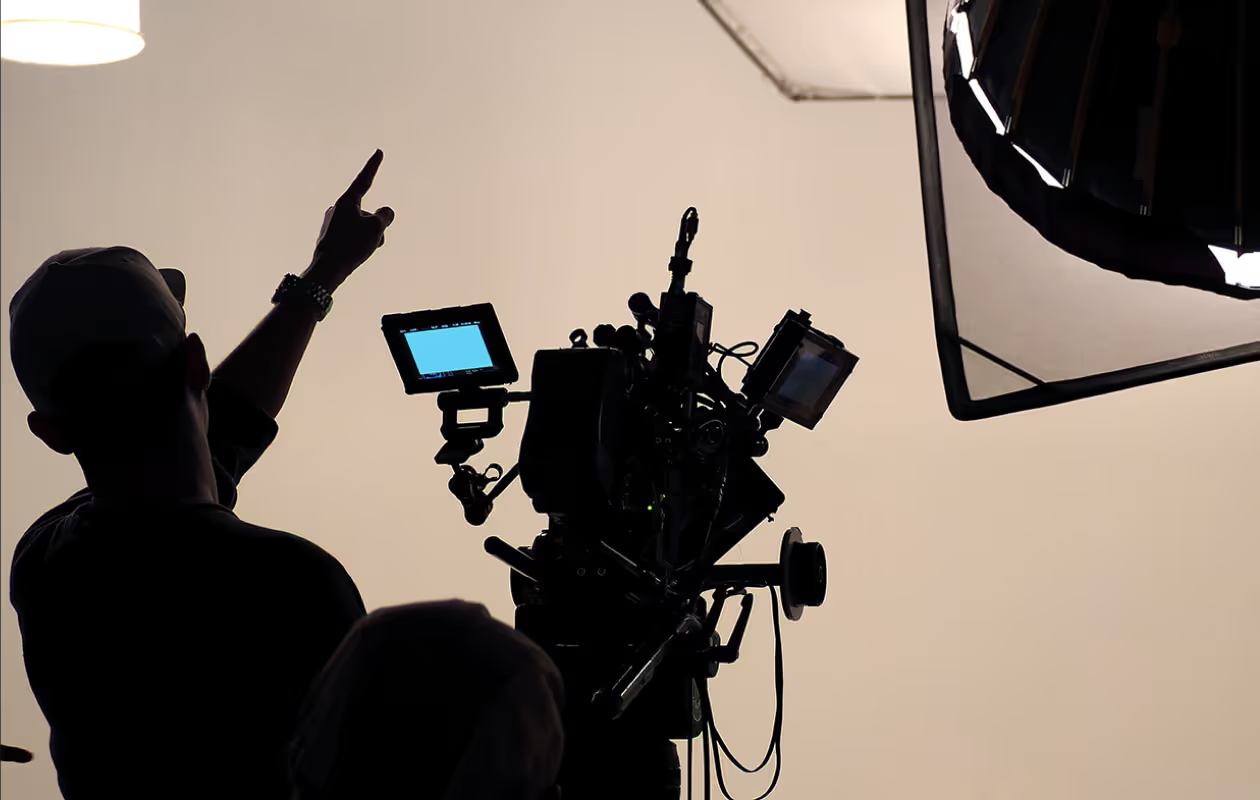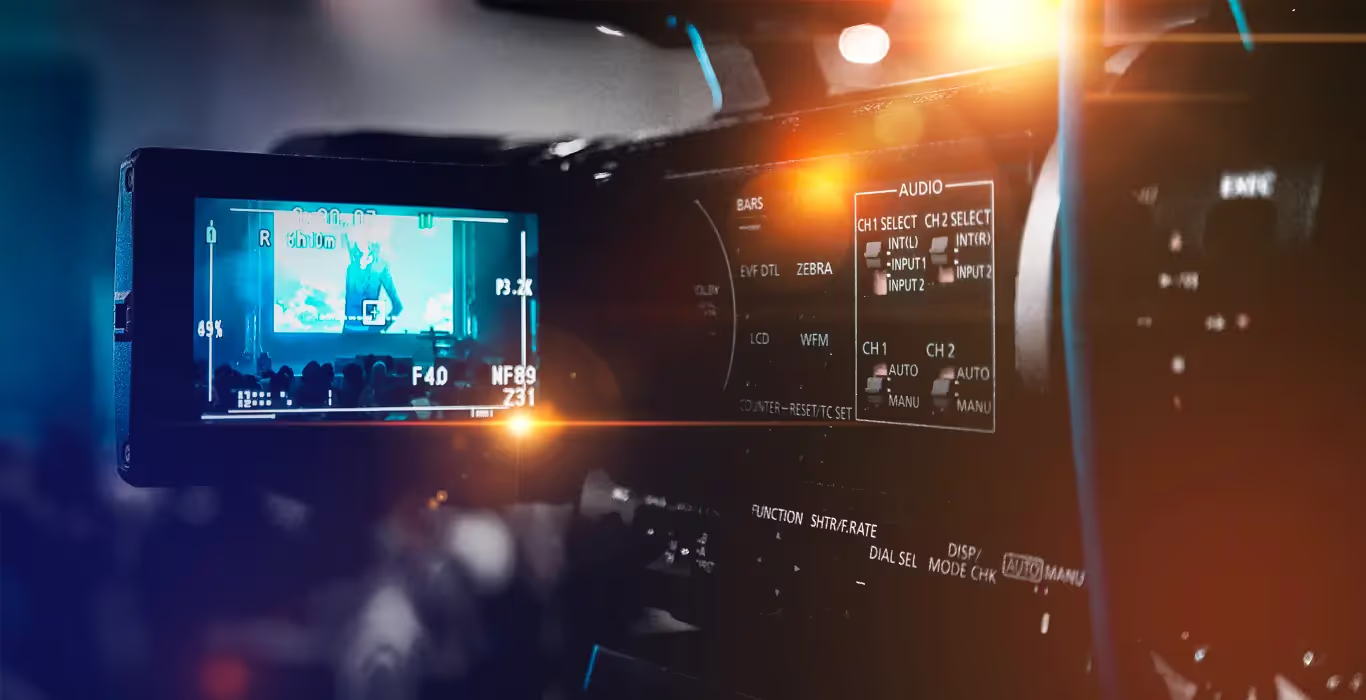Table of Contents
Interviews are a crucial part of storytelling, journalism, and research. A good interview can make or break a story, and having the right equipment can make all the difference. That's why we've spent hours researching and testing various cameras to find the best one for interviews.
When it comes to cameras for interviews, there are a few critical factors to consider. Firstly, the camera needs to have excellent image quality. Interviews are all about capturing the subject's emotions and expressions, and a high-quality camera can make the difference between a good and a great interview. Secondly, the camera needs to be easy to use, especially if you're conducting an interview by yourself. Finally, the camera needs to be portable and lightweight, so you can take it with you wherever you go.
After testing various cameras, we've identified the best one for interviews. We looked at various factors, including image quality, ease of use, and portability, and found a camera that excels in all of these areas. With this camera, you'll be able to capture stunning footage and conduct interviews with ease.
Also Read: Best Interview Camera Angles
Best Cameras for Interviews
As content creators, we know that interviews are an essential part of storytelling. And, to capture the essence of an interview, you need a camera that can deliver high-quality visuals and audio. That's why we've put together a list of the best cameras for interviews. Whether you're a professional videographer or a beginner, these cameras will help you capture the perfect shots. So, without further ado, let's dive into the list.
1. Sony FX6
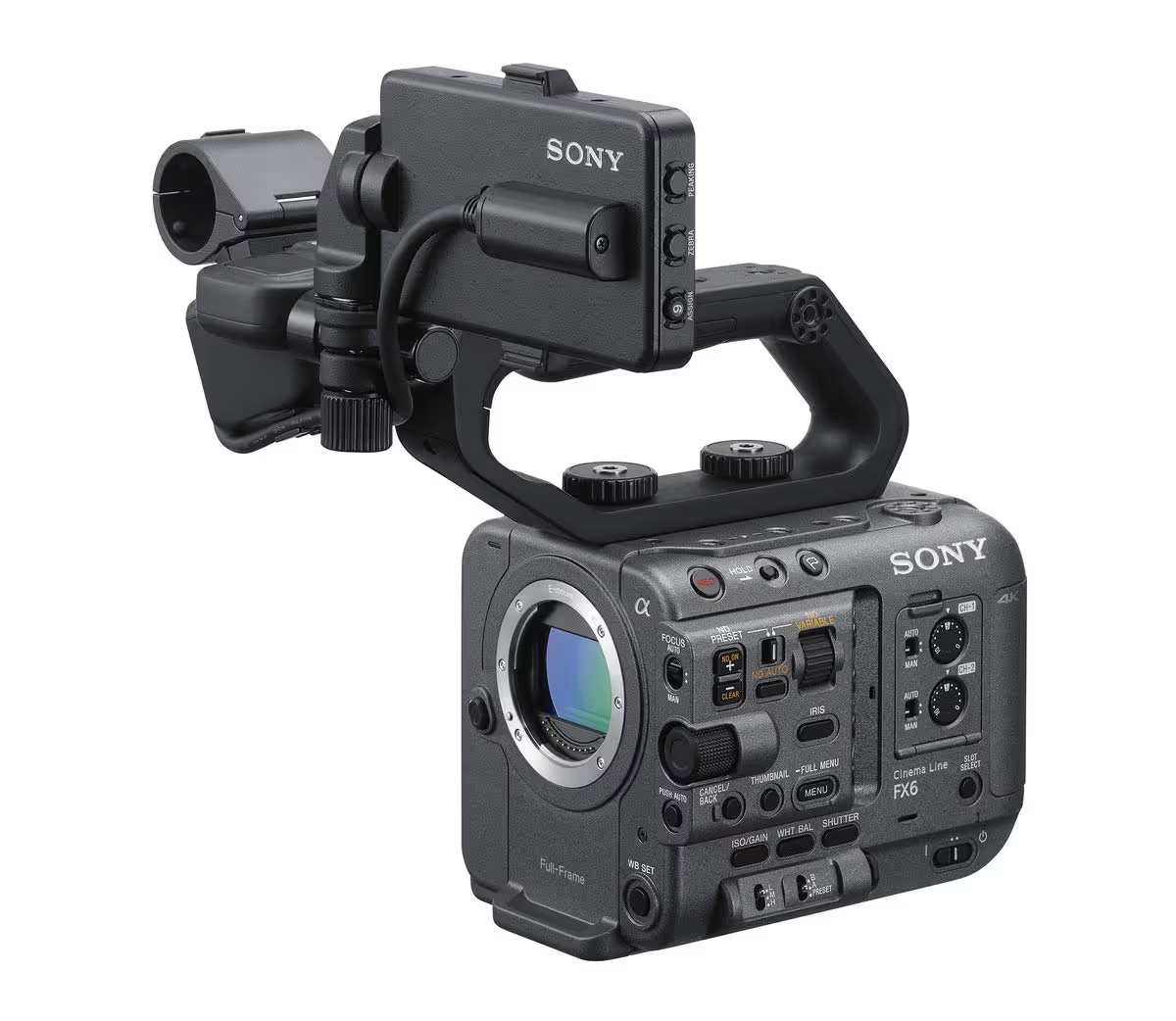
If you're looking for a camera that combines the best of Sony's digital cinema technology with Alpha mirrorless technology, then the SONY ILME-FX6 Cinema Line Full-Frame Camera Body Only is worth considering.
Pros
- The 10.2MP 4K full-frame back-illuminated Exmor R CMOS sensor captures stunning images and videos.
- With high sensitivity up to ISO 409,600 and 15+ stop dynamic range, you can shoot in low light conditions without compromising image quality.
- The Fast Hybrid AF w/ 627 phase-detection AF points and Eye-AF tracking ensures that your subjects are always in focus.
- The Camera that every producer wants to see.
- This Camera will enable you to film any content that any producer wants you to film.
Cons
- The camera doesn't come with a lens, so you'll need to purchase one separately.
- The camera is quite expensive, so it may not be suitable for those on a tight budget.
We were impressed with the SONY ILME-FX6 Cinema Line Full-Frame Camera Body Only. The camera is easy to use, and the images and videos it captures are of exceptional quality. We particularly liked the Fast Hybrid AF w/ 627 phase-detection AF points and Eye-AF tracking, which made it easy to keep our subjects in focus. However, the camera is quite expensive, and it doesn't come with a lens, which could be a dealbreaker for some users. Overall, if you're looking for a high-quality camera for interviews, the SONY ILME-FX6 Cinema Line Full-Frame Camera Body Only is definitely worth considering.
2. Sony FX3
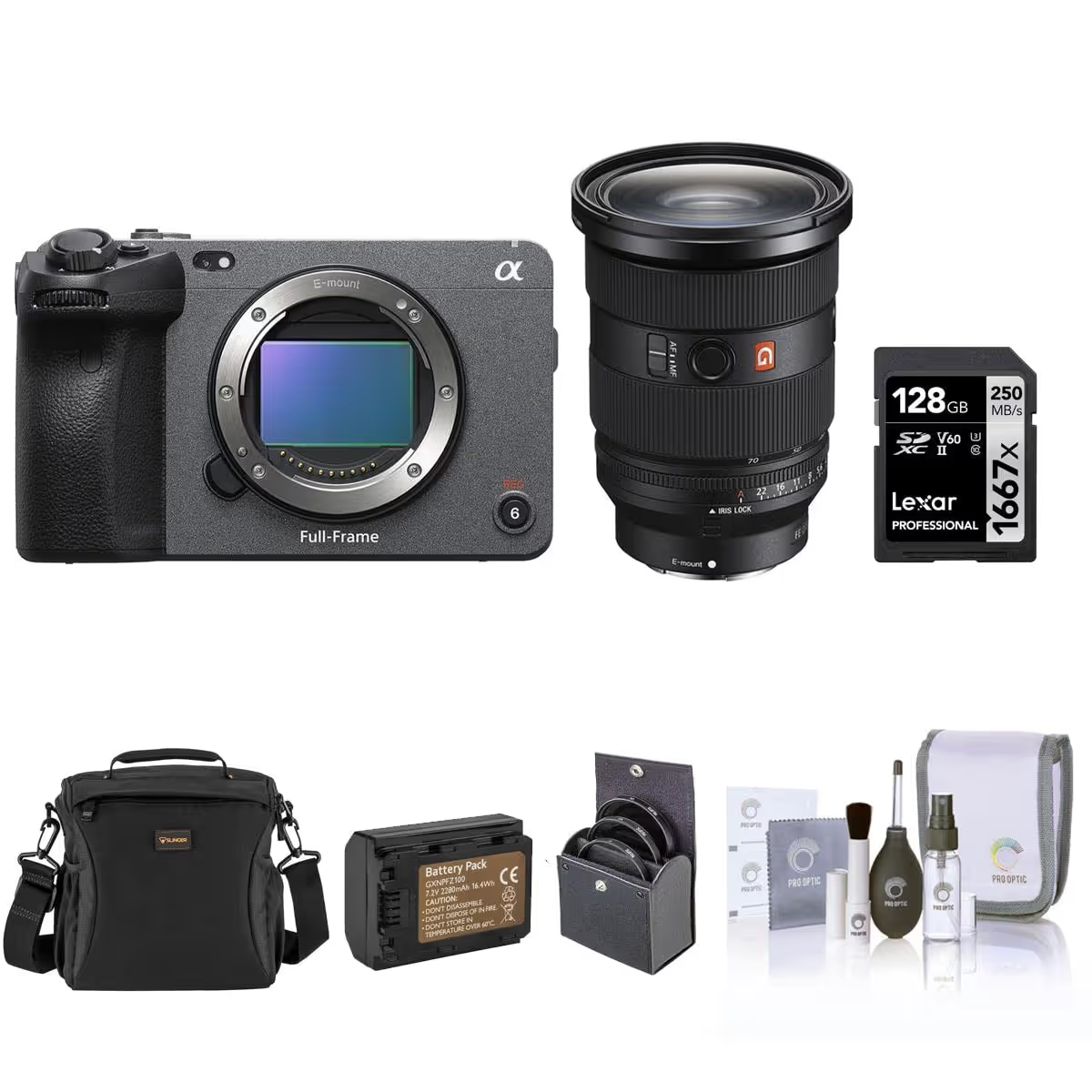
If you are a professional filmmaker or content creator, the Sony FX3 Full-Frame Cinema Line Camera is a versatile and impressive camera that can help you capture stunning images and videos.
Pros
- The camera's full-frame sensor provides impressive low-light capabilities with an ISO range up to 409600 and 15+ stops of dynamic range, ensuring stunning image quality.
- The camera comes bundled with a 24-70mm f/2.8 GM II Lens, which is a versatile lens that can help you capture a wide range of shots.
- The camera also comes with a 128GB memory card, battery pack with USB-C port, 82mm essentials filter kit, shoulder bag, and cleaning kit, making it a comprehensive package that can help you get started with your filmmaking or content creation journey.
Cons
- The camera is quite expensive, which may not be suitable for those who are just starting out or have a limited budget.
- The camera is quite heavy and bulky, which may make it difficult to carry around for extended periods.
- The camera's user interface may take some time to get used to, especially if you are not familiar with Sony's camera systems.
Overall, the Sony FX3 Full-Frame Cinema Line Camera is a great choice for professional filmmakers and content creators who are looking for a versatile and high-quality camera that can help them capture stunning images and videos. With its impressive low-light capabilities, bundled lens, and comprehensive package, it is definitely worth considering if you are looking for a top-of-the-line camera for your filmmaking or content creation needs.
3. Sony FX9
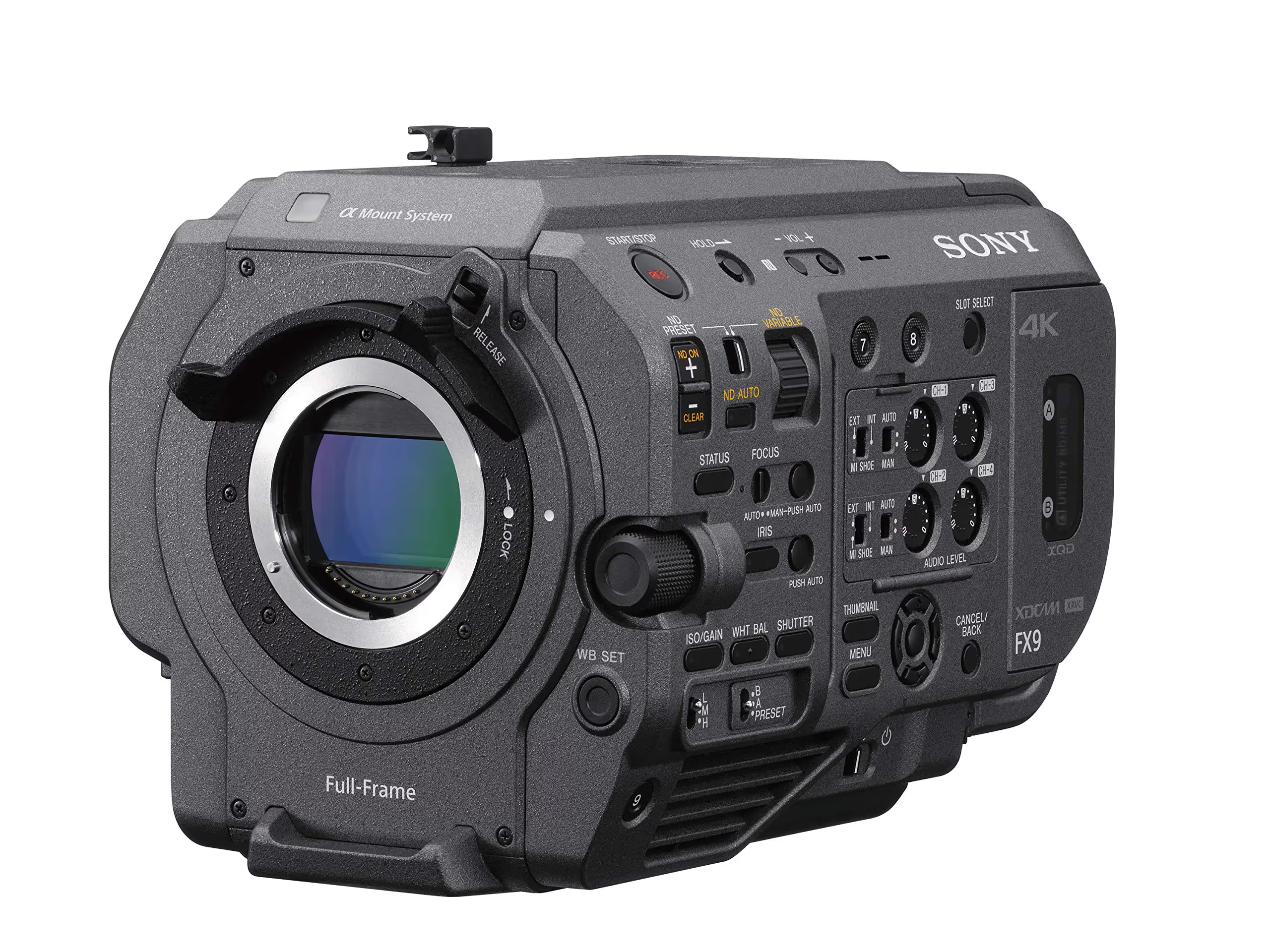
If you're looking for a high-quality camera for interviews, the Sony PXW-FX9 XDCAM Full-Frame Camera System is definitely worth considering. With its 4K capturing capability and oversampled 6K full-frame Exmore R sensor, this camera produces stunningly clear and detailed footage.
Pros
- The camera's dual base of 800/4000 provides excellent low light performance, making it perfect for interviews in any lighting conditions.
- With a dynamic range of 15+ stops, the Sony PXW-FX9 XDCAM Full-Frame Camera System captures a wide range of colors and tones, resulting in beautifully balanced footage.
- The world's first electronic variable ND filter for full-frame sensors ensures that you can capture the perfect shot, no matter the lighting conditions.
Cons
- The camera is quite expensive, making it a significant investment for anyone looking to purchase it.
- The Sony PXW-FX9 XDCAM Full-Frame Camera System is quite bulky and heavy, which may make it difficult to transport and use in some situations.
- The camera's LCD viewfinder may not be as clear or easy to use as some other models on the market.
Overall, we highly recommend the Sony PXW-FX9 XDCAM Full-Frame Camera System for anyone looking for a high-quality camera for interviews. Its advanced features and stunning image quality make it an excellent choice for professional videographers and filmmakers.
4. Canon EOS R10
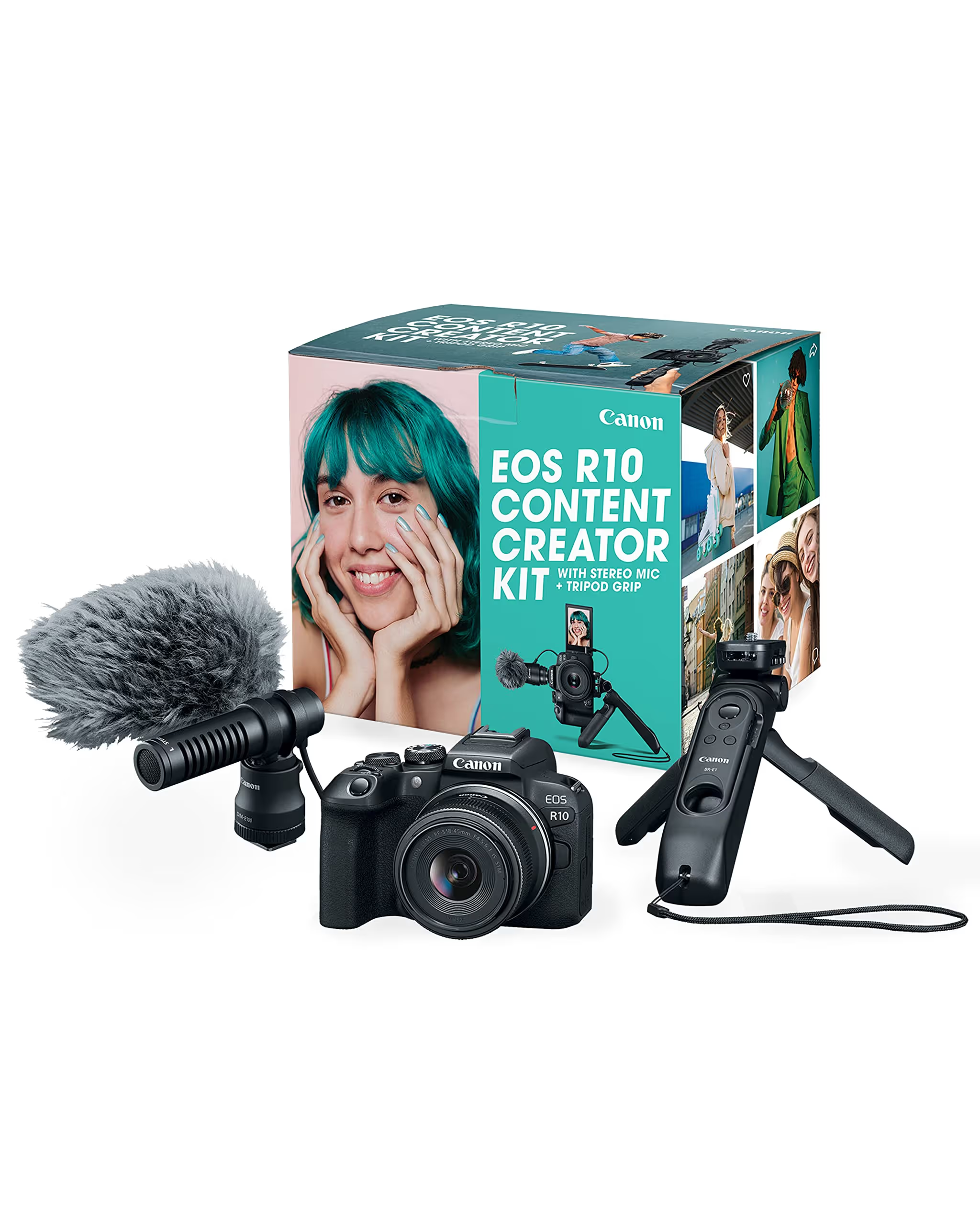
If you're looking for a camera that can capture high-quality photos and videos, the Canon EOS R10 Content Creator Kit is a great choice.
Pros
- The 24.2-megapixel CMOS sensor delivers stunning resolution day or night for all your content creation projects.
- The high-speed 15fps mechanical shutter, 30fps electronic shutter, and RAW Burst Mode make it easy to capture dynamic, action photos of fast-moving subjects in brilliant detail without blur.
- The Movie Servo AF system with Subject Detection and Subject Tracking provides quicker shooting and stronger focus for professional-grade 4K video recording on-the-go.
Cons
- The camera is pricey compared to other options on the market.
- The camera's battery life could be better.
- Some users may find the camera's interface confusing at first.
We loved using this camera for interviews and other content creation projects. The camera is lightweight and easy to handle, making it perfect for shooting on-the-go. The included RF-S18-45mm F4.5-6.3 IS STM lens delivers excellent image quality with a versatile zoom range of 18-45mm. We were impressed by the camera's Dual Pixel CMOS AF technology with EOS R3-inherited advanced people, animal, and vehicle detection, which kept our subjects in crystal-clear focus.
The Canon EOS R10 Content Creator Kit also includes a unidirectional Canon Stereo Microphone (DM-E100) with windscreen for capturing crisp, clear audio indoors or out. Whether you're capturing the perfect high or low-angle selfie or recording video from a fixed surface, the bundled Tripod Grip (HG-100TBR) makes content creation easier than ever. In addition, the detachable wireless remote control (BR-E1) lets you operate the camera from a distance so you can be part of the action.
Overall, if you're looking for a camera that can help take your content creation to the next level, the Canon EOS R10 Content Creator Kit is a great choice.
5. Canon EOS R7
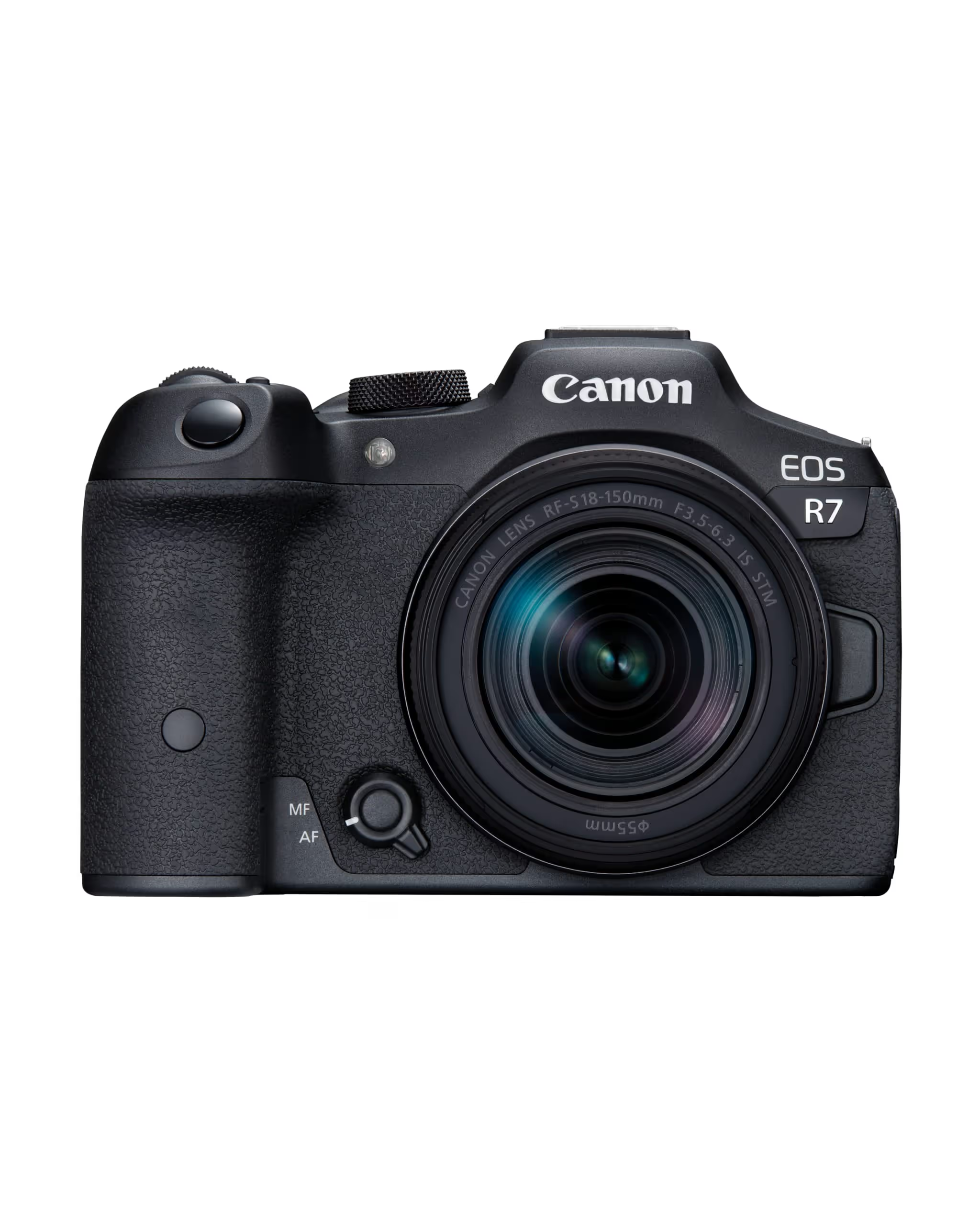
If you're looking for a camera that can take your content creation and photography to new heights, the Canon EOS R7 STM Kit is the perfect choice. With its DIGIC X image processor and 32.5 APS-C CMOS sensor, you can capture breathtaking photos and 4K 60p videos that are sharp and crystal-clear.
Pros
- The RF-S 18-150mm lens is included and is easily attachable to the EOS R7 camera body with the compatible RF mount.
- It has a high-speed continuous shooting mode of up to 15 fps, which is perfect for capturing moving objects such as cars, sporting events, and wildlife.
- The camera is built with 5-axis image stabilization with coordinated control, which means you get seven stops of shake correction for every shot.
Cons
- The camera is a bit on the heavier side, weighing in at 1.17 lbs.
- The effectiveness of the subject detection feature varies depending on the subject, so it may not work for all animals.
- The camera is a bit pricey, but it's worth the investment if you're serious about photography and content creation.
We recently had the chance to use the Canon EOS R7 camera, and we were blown away by its performance. The camera is built with a comfortable and firm grip, making it easy to handle. Plus, its lightweight and compact size lets it fit conveniently into your camera bag so you can take it with you on all your adventures.
The camera's DIGIC X image processor enhances performance for sharp photos and ultra-high definition videos, while the CMOS sensor ensures images appear crisp. The RF-S 18-150mm lens is included in the kit and is easily attachable to the EOS R7 camera body with the compatible RF mount. This means you get full range lens capability with the EOS R7, which is compatible with EF-S, EF, RF, and the new RF-S mounts.
The camera has a high-speed continuous shooting mode of up to 15 fps, which is perfect for capturing moving objects such as cars, sporting events, and wildlife. Additionally, the camera is built with 5-axis image stabilization with coordinated control, which means you get seven stops of shake correction for every shot. This is a game-changer if you're someone who struggles with shaky hands or if you're shooting in low-light conditions.
One of the cons of the camera is that it's a bit on the heavier side, weighing in at 1.17 lbs. This may not be an issue for some, but if you're someone who prefers lighter cameras, this may not be the best option for you. Additionally, the effectiveness of the subject detection feature varies depending on the subject, so it may not work for all animals.
Overall, we highly recommend the Canon EOS R7 camera if you're serious about photography and content creation. It's a bit pricey, but it's worth the investment if you're looking for a camera that can take your photography and videography skills to the next level.
6. Canon EOS R6
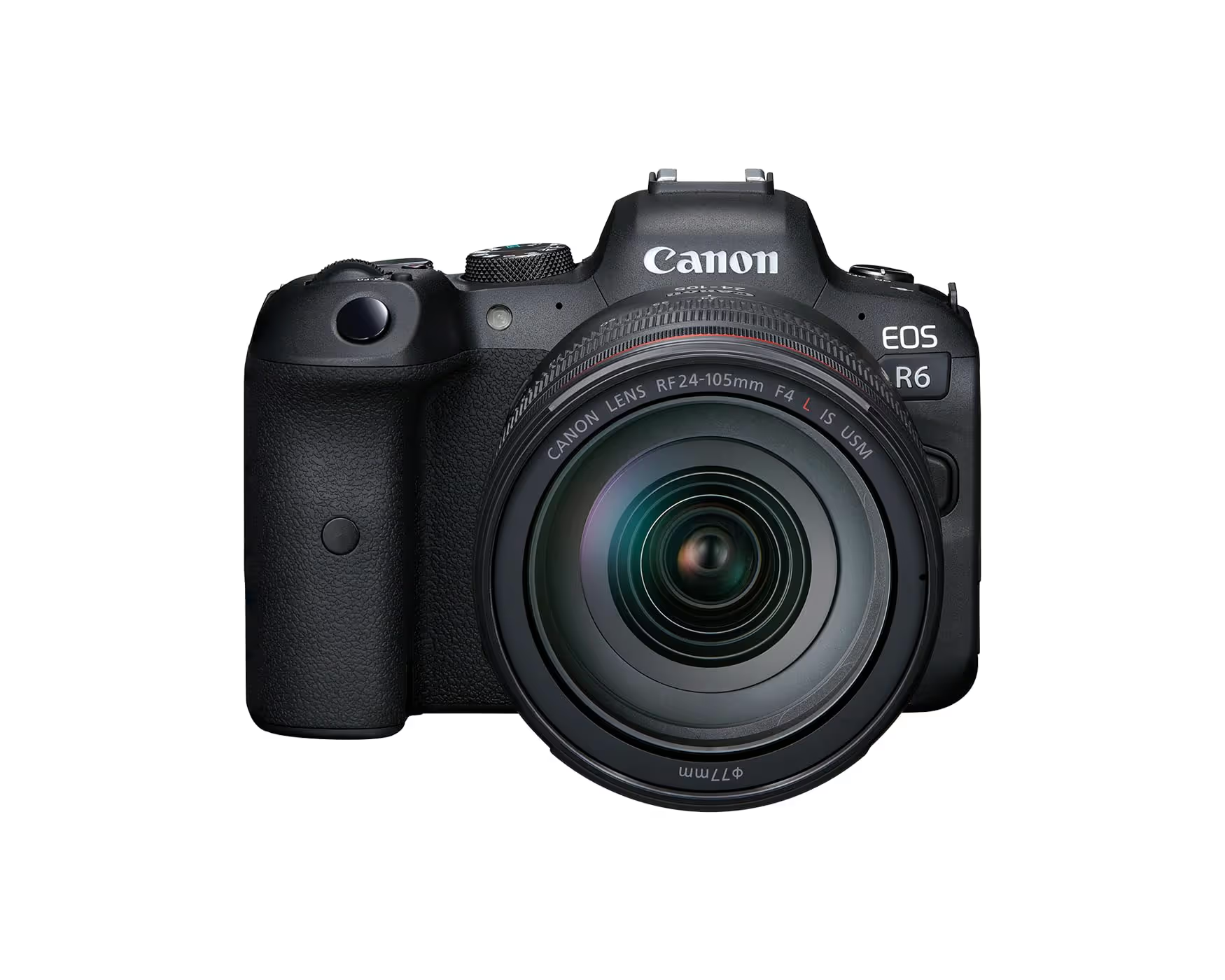
If you're looking for a camera that can capture high-quality images and videos, the Canon EOS R6 Full-Frame Mirrorless Camera + RF24-105mm F4 L is USM Lens Kit is a great option.
Pros
- High-speed continuous shooting of up to 12 fps with Mechanical Shutter and up to 20 fps with Electronic (Silent) Shutter.
- Dual Pixel CMOS AF covering Approx. 100% Area with 1,053 AF Areas.
- Subject tracking of People and Animals* using Deep Learning Technology.
Cons
- Expensive
- May be too advanced for beginners
- Limited battery life
We've been using the Canon EOS R6 Full-Frame Mirrorless Camera + RF24-105mm F4 L is USM Lens Kit for a few weeks now and have been impressed with its capabilities. The high-speed continuous shooting is perfect for capturing fast-moving subjects, while the Dual Pixel CMOS AF ensures that your images are sharp and in focus.
One of the standout features of this camera is its subject tracking technology. Whether you're photographing people or animals, the EOS R6 can track them with ease, thanks to its deep learning technology. This makes it a great option for photographers who need to capture fast-moving subjects.
Another great feature of the Canon EOS R6 is its high-quality video capabilities. With the ability to shoot 4K 60P and Full HD 120P, this camera is perfect for videographers who need to capture high-quality footage. The inclusion of Dual SDXC UHS-II card slots makes it easy to transfer your footage to your computer or other device.
Overall, the Canon EOS R6 Full-Frame Mirrorless Camera + RF24-105mm F4 L is USM Lens Kit is a great option for photographers and videographers who need a high-quality camera that can handle a variety of shooting situations. While it may be too advanced for beginners, those with more experience will appreciate its capabilities.
7. Canon EOS R5
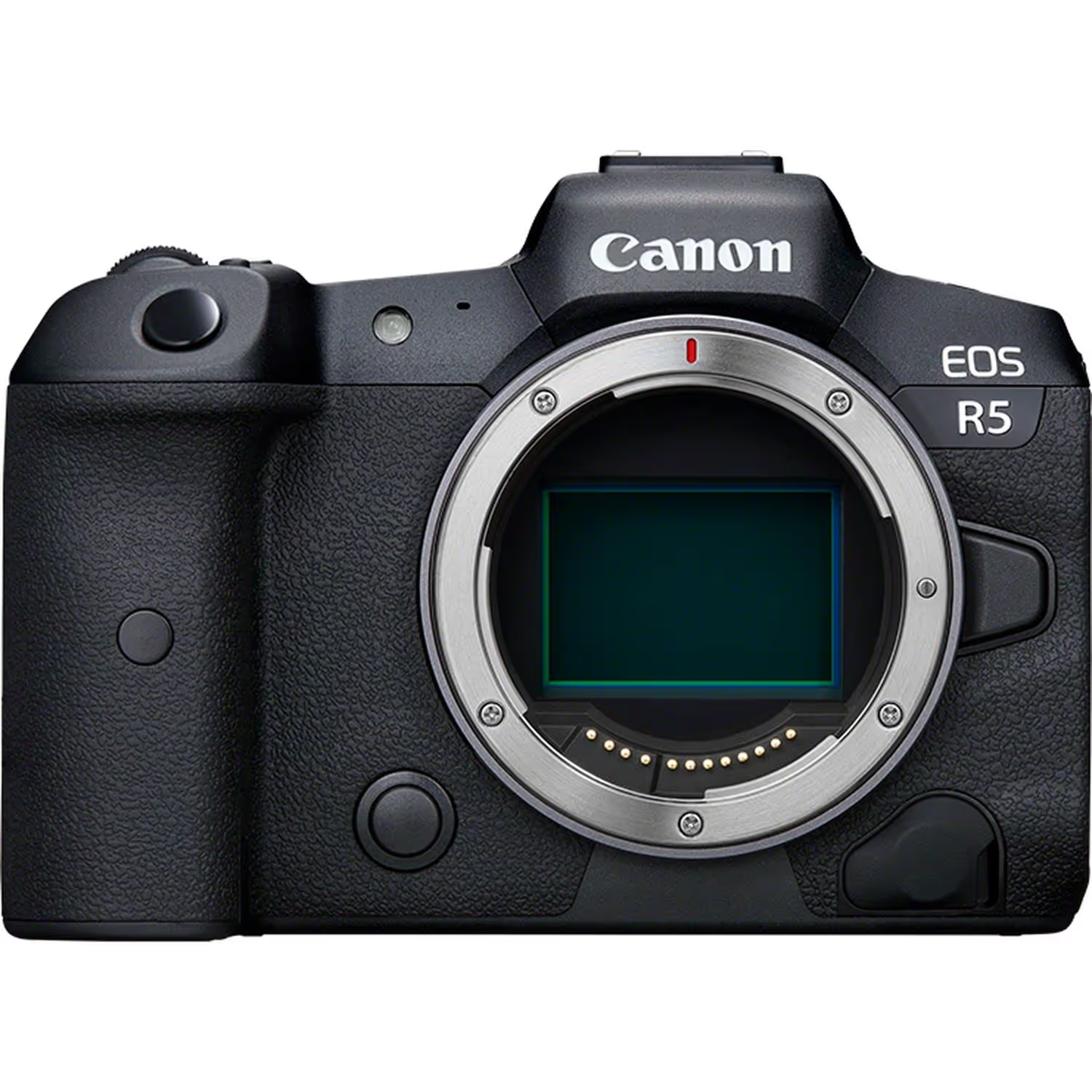
If you're looking for a high-quality camera for interviews, the Canon EOS R5 is definitely worth considering.
Pros
- The 45 Megapixel full-frame CMOS sensor produces stunning image quality.
- The camera has an impressive 8K DCI cinematic movie capture capability, and can extract 35.4 Megapixel still images.
- Dual Pixel CMOS AF II capability makes it easy to track split-second movements of even the most elusive of subjects.
Cons
- The cost of the camera may be prohibitive for some.
- Video issues have been reported, but Canon has released firmware updates to address these issues.
- It may take some time to become familiar with all of the camera's features and settings.
The Canon EOS R5 is an excellent camera for interviews. Its 45 Megapixel full-frame CMOS sensor produces stunning image quality that will make your interviews look amazing. Additionally, the camera's 8K DCI cinematic movie capture capability and ability to extract 35.4 Megapixel still images make it a versatile tool for any videographer or photographer.
One of the standout features of the Canon EOS R5 is its Dual Pixel CMOS AF II capability. This feature allows you to track split-second movements of even the most elusive subjects with ease. With 1,053 Automatic AF zones, it's easier than ever to photograph people with the use of Eye, Face and Head Detection AF, or intuitively track the whole body, face or eye of cats, dogs, or birds with Animal Detection AF.
While the cost of the Canon EOS R5 may be prohibitive for some, it's important to remember that you get what you pay for. If you're serious about creating high-quality content, the investment may be worth it. Additionally, while video issues have been reported, Canon has released firmware updates to address these issues.
Overall, we highly recommend the Canon EOS R5 for anyone looking for a high-quality camera for interviews. Its impressive features and capabilities make it a versatile tool for any videographer or photographer.
8. Sony a6400
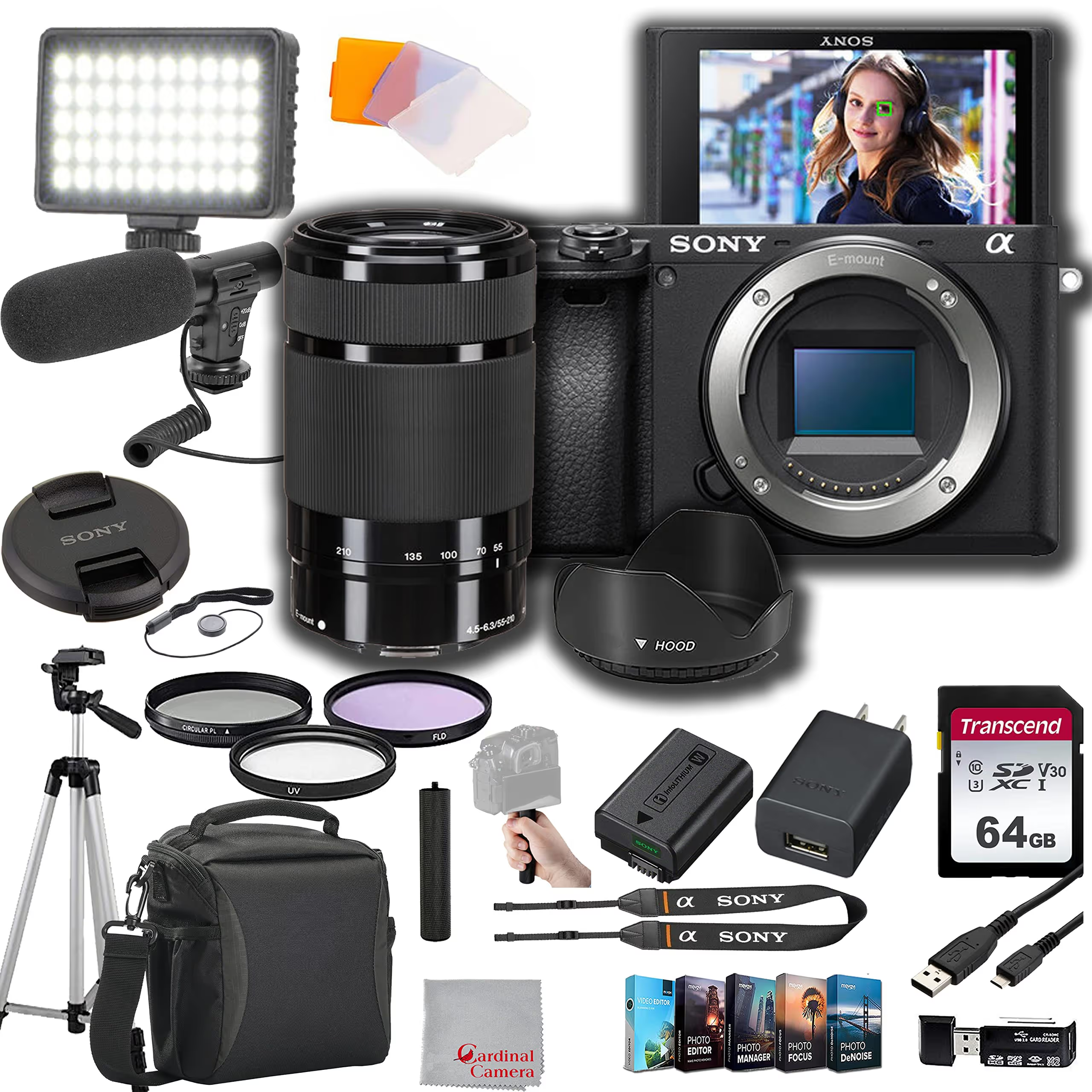
If you're looking for a versatile and compact camera for interviews, the Sony a6400 Mirrorless Camera is a great option. With its fast autofocus acquisition of 0.02 seconds, Real-time Eye AF and Real-time Tracking capabilities, high-speed shooting up to 11 fps and silent shooting up to 8 fps, both with AF/AE tracking, and an upgraded BIONZ X image processing engine, this camera is designed for capturing fast-moving subjects with stunning clarity and detail.
Pros
- The camera's autofocus system is incredibly fast and accurate, making it easy to capture sharp images and videos of moving subjects.
- The camera's LCD touchscreen tilts 180° up and 74° down, making it easy to frame shots from a variety of angles.
- The camera shoots UHD 4K video with full pixel readout and no pixel binning, resulting in stunningly detailed footage.
Cons
- The camera's battery life is somewhat limited, so you may need to carry extra batteries if you plan on shooting for extended periods of time.
- The camera's menu system can be somewhat confusing and overwhelming at first, so it may take some time to get used to all of its features and settings.
- The camera's bundled accessories may not be of the highest quality, so you may want to invest in higher-quality accessories if you plan on using the camera regularly.
Overall, we highly recommend the Sony a6400 Mirrorless Camera for anyone looking for a versatile and compact camera for interviews. Its fast autofocus system, high-speed shooting capabilities, and stunning 4K video make it a great choice for capturing high-quality footage of fast-moving subjects.
Buying Guide
When looking for the best camera for interviews, there are several key factors to consider. In this buying guide, we'll go over the most important features to look for when choosing the right camera to suit your needs.
Sensor Size
The size of a camera's sensor is an important consideration when looking for a camera for interviews. Generally, larger sensors will provide better image quality and low-light performance. Full-frame sensors are the largest and provide the best image quality, but they can be quite expensive. APS-C sensors are a good compromise between cost and image quality, while micro four-thirds sensors are smaller but still offer good performance.
Lens Compatibility
Another important consideration is lens compatibility. Some cameras have proprietary lens mounts, which can limit your options when it comes to choosing lenses. Others use more common mounts, which can make it easier to find lenses that suit your needs. Make sure to check what lenses are available for the camera you're considering, and whether they fit your budget and shooting style.
Video Features
If you're planning on using your camera for interviews, video features are important to consider. Look for cameras that can shoot at least 1080p resolution, and ideally 4K. You'll also want to look for cameras that offer manual control over exposure, focus, and audio levels, as well as a microphone input.
Other Features
Other features to consider include battery life, durability, and ease of use. A camera with a long battery life can be a big advantage when shooting interviews, as you don't want to have to stop in the middle of an interview to change batteries. A durable camera can withstand the rigors of travel and frequent use, while an easy-to-use camera can help you focus on your subject rather than the camera's settings.
Overall, when looking for the best camera for interviews, it's important to consider your specific needs and shooting style. By taking into account the factors listed above, you can find a camera that will help you capture great interviews with ease.


